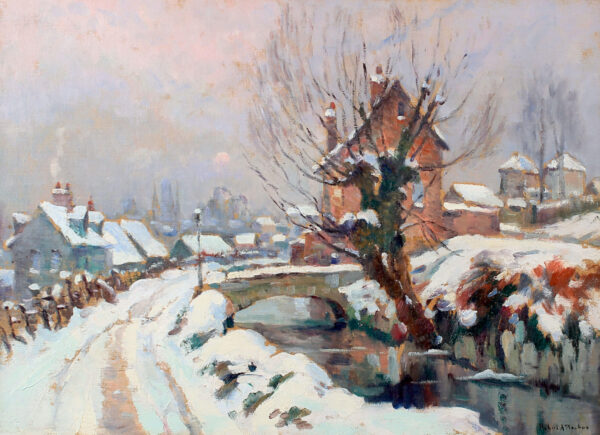Robert Pinchon was a French painter associated with the Fauvism and Impressionism movements. He was born on July 1, 1886, in Rouen, Normandy, France. He began his artistic training at a young age and studied at the École des Beaux-Arts in Rouen.
In 1905, Pinchon moved to Paris and met artists such as André Derain and Maurice de Vlaminck, who were leading figures in the Fauvism movement. Pinchon was inspired by the bold colors and expressive brushstrokes used by these artists, which he would later incorporate into his own work.
In 1906, Pinchon exhibited his work at the Salon des Indépendants and the Salon d’Automne. He was known for his vibrant and colorful landscapes, which were painted in a bold and expressive style. Pinchon’s work often depicted scenes from Normandy, including the beaches, harbors, and countryside.
During World War I, Pinchon served in the French Army and was wounded in the Battle of the Somme. After the war, he returned to painting and continued to develop his style. In the 1920s, he began to experiment with abstraction, using geometric shapes and bright colors in his work.
Despite his success as an artist, Pinchon struggled with financial difficulties throughout his career. He often had to sell his work to art dealers at low prices to make ends meet. In 1943, Pinchon died in poverty at the age of 56.
Today, Pinchon is recognized as an important figure in French art history, and his work is held in collections around the world, including the Musée d’Art Moderne de la Ville de Paris, the Musée des Beaux-Arts de Rouen, and the National Gallery of Australia.

